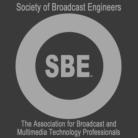
A list of some of our clients:
Variety - The Children’s Charity International Kentucky Historical Society Livingston County Archives Charlotte Florida County Libraries Catholic University Archives Hostos Community College Archives University of Idaho Archives Wayne County Historical Society The Judd Foundation Catawba Indian Nation Archives City University of New York (CUNY) Strong Memorial Hospital Xerox Corporation Arts Council for Wyoming County Wallace Memorial Library at RIT Boys Scouts of America Mount Hope Family Center Republic Bank Catawba Indian Nation Georgetown University Memorial Art Gallery Niagara County Community College Edinboro University Nechung Dorje Temple and Retreat Center Eisenhower College Alumni Foundation St. John Fisher College Roswell Park Cancer Institute 4th Act Factual Densho: The Japanese American Legacy Project State University at Brockport Univertisy of South Carolina Dharma Ocean Foundation University of Cincinnati The Estate of Blossom Dearie Cornell University Don Elliot Music Collection Sisters of Saint Joseph Archives
InStyle Magazine
The Jewish Federation
Squeaky Wheel Film & Media Arts Center
Paychex
People Magazine
National Institute for the Deaf
Advanced Dynamics, LTD
Lindon H. LaRouche Foundation
National Technical Institute for the Deaf
The University of Rochester
Office of Special Affairs - California
Bureau of Alcohol Tobacco and Firearms
University of Idaho
Naples Historical Society
Progressive Insurance - Corporate Headquarters
Dr. Frank Vinifera Wine Cellars
US Central Intelligence Agency
United States Naval Academy - Nimitz Library
Digital Voyage Media
Bix Beiderbecke Museum
Public Broadcasting Service
Estate of Jean Craighead George
Camp Pathfinder
Alfred State University - Scholes Library
The Visual Studies Workshop
Eastman Kodak Company
Rochester International Film Festival
WROC TV-8
Wegmans Food Markets
Citibank
Genesee Valley Coucil of the Arts
Free To Choose Network
New Energy Works Timberframers
Dotdash Meredith Corporation
Time Inc.
Rochester Folk Art Guild
State University at Geneseo
Audiovisual media library archive conversion
services for your business, educational
institution or organization.
First consider this...
Almost every organization has important audiovisual records. Even if you have a smaller media library, quite often these records are not properly stored or organized and may be located in multiple physical locations. In most cases, little consideration is given to the special storage requirements of audiovisual media. More often than not, there is no backup in place. Chances are, your media collection would be used if you had more details on the contents and if there was an easier way to access and play back the information. At MTS, we are strong proponents of the basic philosophy, "if you can't measure it, you can't manage it". The first and most important step in preserving your audiovisual media library is measurement through assessment. Assessing the basic media types, condition of your media, size of your collection, content and importance of the collection, along with knowing how the current physical storage environment will effect the collection's lifespan, are all keys to managing the collection and properly preserving it for future use.Why should I consider converting my library?
Videotape, audio recordings, photos, transparencies, motion picture film, and now optical disk recordings are all prone to deterioration, wear, fading, information loss, damage, erasure and contamination. Even under proper storage conditions, in most cases your media library is slowly erasing itself over time. If deterioration could be stopped, technology advances and media formats are phased out. Reliable original playback machines become harder to find and more expensive to maintain. The more time allowed to pass between a format being phased out and finally digitizing your content, the more you put your media at risk and the greater the likelihood that it will cost more to transfer in the future. On the positive side, the benefits in conversion to digital format allow for easier use and access, quick and inexpensive copies and backup, digital restoration, fast access to materials for presentation, sharing of media across a networked platform and quick/easy migration to new formats as they become available.Why use Media Transfer Service?
Choosing the right company to convert your media library is an important decision. The right company should have the resources of professional conversion equipment which is properly maintained and calibrated. They should know and follow industry standards and best practices. They should be able to offer media inspection services and have a working knowledge of media deterioration/contamination, media repair/recovery and suggestions for proper original media storage before and after it has been converted. They should have the ability to add metadata information to the conversion process or at least guide you on what type of resource information should be provided as an attachment to the conversion process. Finally, your conversion company should have the knowledgebase and foresight to provide a high quality end-product, in the proper formats that will be useful both now and into the future. Combine these key requirements with a partner that will treat both you and your media library with respect, professionalism, care, understanding and you have Media Transfer Service. We work with a wide range of clientèle and provide satisfied clients with consistent, professional results. See the list below for a sampling of clients we service.Is converting my media library expensive?
Most people assume that converting their media library is very expensive but are surprised to find out how cost effective the process is. We have many clients that have an annual funding budget for preservation and only convert a portion of their library each year as part of a multi-year conversion plan. We work closely with clients who are applying for grants or other funding. Combined with the advantages of digital media, the halt of further information loss and excellent customer service, our clients see a true value."No experience necessary".
Our clients don't need to be experts in media conversion, that's our specialty. We work with you in easy to understand terms and methods. The final product is easy to use and access.The first step: Assessing your needs.
A detailed client-needs assessment is the first critical step to converting your media library. First we analyze your media library and assess your current and future needs. Working to your budget and timelines, we then present a comprehensive conversion plan, detailing any media conversion priorities, conversion timelines and methods, final media formats and data access/storage options. Our goal is to meet your current needs while allowing for future growth, all within your budget.Tying it all together.
Most businesses or organizations that have a media library, continue to add to it on an ongoing basis. Part of our service can include consultation and coordination with other departments within your organization. This insures that you don't have to go through the additional expense of converting media that is currently being produced, when adding it to your digital library.
Copyright © 2025 Media Transfer Service, LLC. All rights Reserved
Proud Corporate Members of:
Media Transfer Service, LLC
317 Main Street
Eyer Building - 3rd floor
East Rochester, NY 14445
(585) 248-4908
(by appointment only)
info@mediatransferservice.com



Copyright © 2025 Media Transfer Service, LLC. All rights Reserved

Audiovisual media library archive
conversion services for your
business, educational institution
or organization.
First consider this...
Almost every organization has important audiovisual records. Even if you have a smaller media library, quite often these records are not properly stored or organized and may be located in multiple physical locations. In most cases, little consideration is given to the special storage requirements of audiovisual media. More often than not, there is no backup in place. Chances are, your media collection would be used if you had more details on the contents and if there was an easier way to access and play back the information. At MTS, we are strong proponents of the basic philosophy, "if you can't measure it, you can't manage it". The first and most important step in preserving your audiovisual media library is measurement through assessment. Assessing the basic media types, condition of your media, size of your collection, content and importance of the collection, along with knowing how the current physical storage environment will effect the collection's lifespan, are all keys to managing the collection and properly preserving it for future use.Why should I convert my library?
Videotape, audio recordings, transparencies, photos, motion picture film, and now optical disk recordings are all prone to deterioration, wear, fading, information loss, damage, erasure and contamination. Even under proper storage conditions, in most cases your media library is slowly erasing itself over time. If deterioration could be stopped, technology advances and media formats are phased out. Reliable original playback machines become harder to find and more expensive to maintain. The more time allowed to pass between a format being phased out and finally digitizing your content, the more you put your media at risk and the greater the likelihood that it will cost more to transfer in the future. On the positive side, the benefits in conversion to digital format allow for easier use and access, quick and inexpensive copies and backup, digital restoration, fast access to materials for presentation, sharing of media across a networked platform and quick/easy migration to new formats as they become available.Why use Media Transfer Service?
Choosing the right company to convert your media library is an important decision. The right company should have the resources of professional conversion equipment which is properly maintained and calibrated. They should know and follow industry standards and best practices. They should be able to offer media inspection services and have a working knowledge of media deterioration/ contamination, media repair/recovery and suggestions for proper original media storage before and after it has been converted. They should have the ability to add metadata information to the conversion process or at least guide you on what type of resource information should be provided as an attachment to the conversion process. Finally, your conversion company should have the knowledgebase and foresight to provide a high quality end-product, in the proper formats that will be useful both now and into the future. Combine these key requirements with a partner that will treat both you and your media library with respect, professionalism, care, understanding and you have Media Transfer Service. We work with a wide range of clientèle and provide satisfied clients with consistent, professional results. See the list below for a sampling of clients we service.Is converting my media library expensive?
Most people assume that converting their media library is very expensive but are surprised to find out how cost effective the process is. We have many clients that have an annual funding budget for preservation and only convert a portion of their library each year as part of a multi-year conversion plan. We work closely with clients who are applying for grants or other funding. Combined with the advantages of digital media, the halt of further information loss and excellent customer service, our clients see a true value."No experience necessary".
Our clients don't need to be experts in media conversion, that's our specialty. We work with you in easy to understand terms and methods. The final product is easy to use and access.The first step: Assessing your needs.
A detailed client-needs assessment is the first critical step to converting your media library. First we analyze your media library and assess your current and future needs. Working to your budget and timelines, we then present a comprehensive conversion plan, detailing any media conversion priorities, conversion timelines and methods, final media formats and data access/storage options. Our goal is to meet your current needs while allowing for future growth, all within your budget.Tying it all together.
Most businesses or organizations that have a media library, continue to add to it on an ongoing basis. Part of our service can include consultation and coordination with other departments within your organization. This insures that you don't have to go through the additional expense of converting media that is currently being produced, when adding it to your digital library.
Proud Corporate Members of:
Media Transfer Service, LLC
317 Main Street
Eyer Building - 3rd floor
East Rochester, NY 14445
(585) 248-4908
(by appointment only)
info@mediatransferservice.com



























